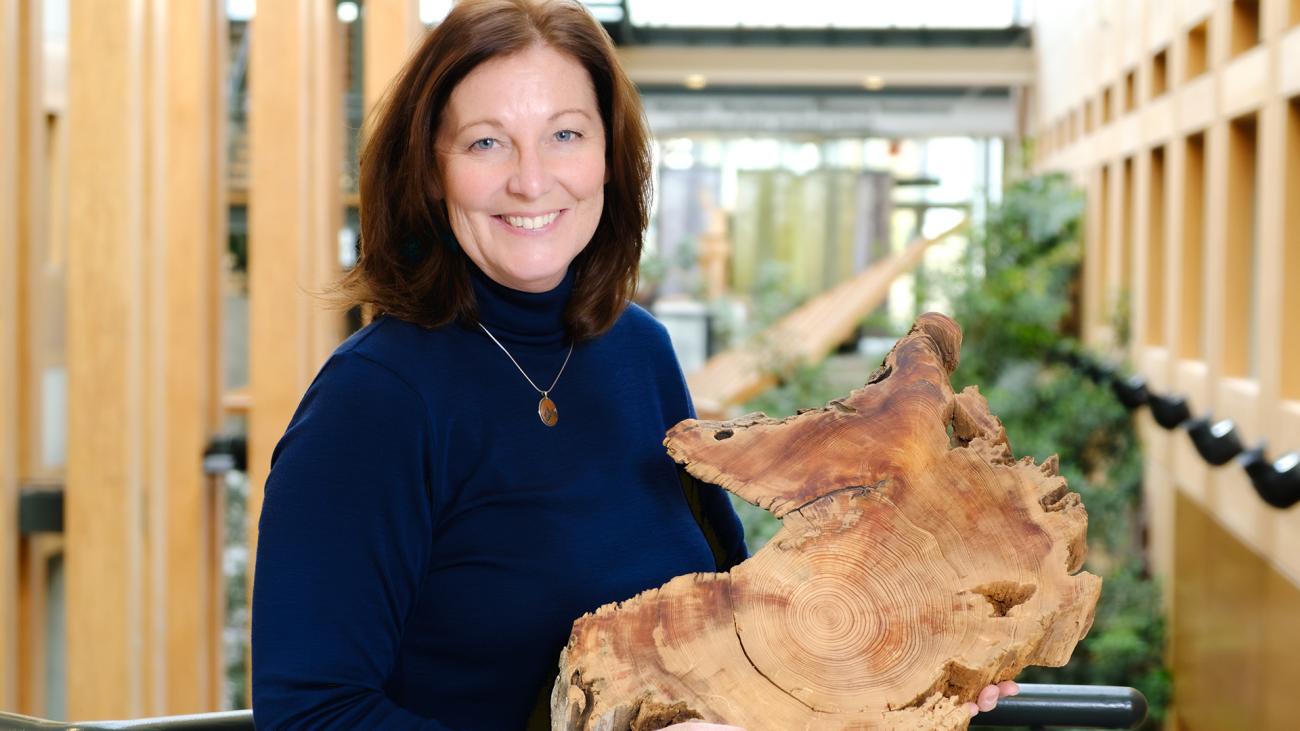Finding solutions to support wildfire resilience and coexistence
The Centre for Wildfire Coexistence is co-creating solutions to move communities towards good fire and away from out-of-control blazes.
Professor Lori Daniels with UBC’s Faculty of Forestry has a vision to realize greater resilience to wildfire in British Columbia and beyond. Thanks to an initial $5 million donation from the Koerner family to establish the Centre for Wildfire Coexistence, Dr. Daniels is amassing a multidisciplinary team to address the growing challenge of wildfire in the province, across Canada, and globally.
Together with community partners, Dr. Daniels’ far-reaching research is identifying solutions that address record-breaking wildfires — driven by climate change combined with the legacies of a century of forest management — and their catastrophic impacts on human health, tourism, agriculture, forestry, and biodiversity.
“The success of the Centre for Wildfire Coexistence builds on ongoing engagement with partners at all levels,” says Dr. Daniels, who is the inaugural Koerner Chair in Wildfire Coexistence.
“By actively involving the public, communities, Indigenous leaders, all levels of government, and non-governmental organizations in our research and initiatives, we can co-create effective strategies for wildfire coexistence and build more resilient landscapes.”
Over the past seven years, wildfires have ripped through BC and Canada at an unprecedented rate, with the most devastating wildfire season in Canadian history taking place in 2023.
Dr. Daniels’ solutions-oriented research through Centre for Wildfire Coexistence advances transformation to proactive fire and forest management and eco-cultural restoration. This approach is designed to mitigate the destructive risks from wildfire by making landscapes and communities more resilient.
Through strong partnerships with Indigenous Nations and organizations throughout BC, the Centre prioritizes respectful collaborations to advance research co-led by Indigenous peoples and western scientists. Revitalization of Indigenous land and fire stewardship enables good fire to sustain ecosystem health and community wellbeing.
“Historically, low-severity fires — including cultural fires — sustained diverse forests across BC’s interior,” says Dr. Daniels, who is also the Director of the UBC Tree Ring Lab. “Ignited by lightning and Indigenous fire stewardship, these fires thinned forests, curbing intense blazes and nurturing renewed plant growth, while rejuvenating wildlife habitats.”
The cutting-edge research and field work of Dr. Daniels and her team will identify new paths forward to better enable communities at risk to coexist safely with forest fire.
“Wildfire has burned almost seven million hectares of forest in BC over the past seven years, with a direct cost of over $3 billion and an incalculable cost to ecosystems, economies, human health, and wellbeing,” notes Dr. Daniels. “Larger severe wildfires are an unintended consequence resulting from decades of fire suppression, forest management practices, and extensive tree die-off from the mountain pine beetle and other insects, all of which have been compounded by hotter, drier weather from climate change.”
“Moving forward, we need well-informed solutions to build resilience to wildfire that both protect and empower communities, enabling them to thrive in the face of mounting uncertainty.”
In BC, wildfires affect us all. Consider giving to the crucial research at the Centre for Wildfire Coexistence.



































